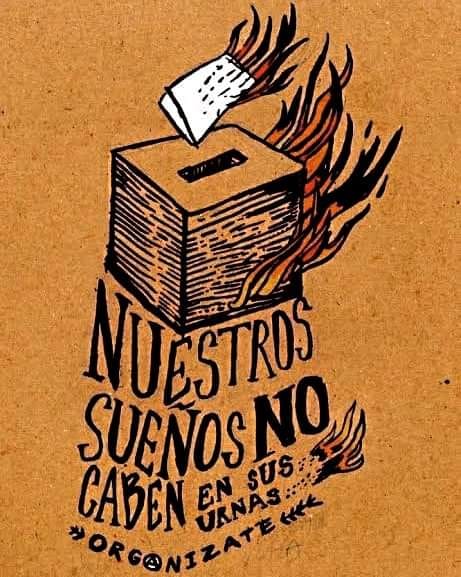
The irreversible electoral triumph of the Morena party at all levels is already defined. This opens the debate on the essential changes to the line of continuity that has been outlined by the party that will remain in power for the next six years. Before the inauguration, the makeup of the cabinet of Claudia Sheinbaum, the virtual president-elect, will surely be on the public agenda, a matter of obvious priority, but one which is not linked to the questions that I want to raise outside of this agenda, and especially for those of us who place ourselves in the critical trenches with respect to the so-called continuity.
Without wanting to throw a fly into the ointment, I consider that first of all, we need to follow up on the composition and locations of the electorate that went to the polls on June 2 and interpret the numbers of abstentionism that in general have been maintained for several decades with almost 40 percent of the total electoral roll, in this case close to 100 million. Beyond the generalized dismissal as an apathetic or disinterested bloc with regard to the destiny of the nation, I suggest reading that there are sectors that have not been historically reflected in the official agendas of power. I am referring to the indigenous peoples and the youth.
In the first case, it is evident that they are located in rural areas in what remains of their territories. Their members did not necessarily cast their vote from there as a sort of quid pro quo for welfare support or scholarships. Or for those who have migrated to the cities who, together with the rest of the excluded and marginalized non-indigenous people, do not find reasons to argue that their new location offers them equal opportunities with what we will generically call urban citizenship, whose constituents exercise their rights on an individual level. The criticism of the emphasis of the so-called 4T on the treatment of indigenous peoples, which has excluded their nature as subjects with collective rights and predominantly including their members as recipients of individual support or scholarships, is not new. If anything, the Yaqui Justice Plan was particularly profiled in the attention to historical demands as peoples. Well, this policy profile encapsulates the line of continuity referred to for the so-called second stage of the 4T. A rethinking outside generic terms has not been articulated. In the communities we find some of the historical abstentionism. As a response to the new stage, a good part of the indigenous movement is saying that it does not matter if they voted or not as individuals, the call is to organize as peoples. That is to say, as a way of reiterating that the struggle goes on and on.
The other sector singled out and questioned as abstentionist is that of young people, whose numbers of potential voters represents almost 26.6 million. In 2018, 17 percent voted.
Let’s just remember that in the recent days, the call to get them to vote intensified. We do not have the precise figures of their participation in this race, but we can point out that they are not apathetic and disinterested in the destiny of the nation, that the young population has its own agenda that is not reflected in that of the political parties, except for one, whose minority candidate, Movimiento Ciudadano, made it a priority to dialogue with them.
Thus we have two examples that require a break in the chain of continuity. But not only them. The vast majority of voters of the parties demand and expect a fundamental change in security. The strategy of hugs, not bullets must be abandoned and a new policy must be designed, since the so-called organized crime is a scourge all over the country, and the forms of violence are especially prevalent in indigenous and non-indigenous localities. The victims in terms of candidates and the need for the accompaniment of security forces does not admit denial or reductionist views. In Chiapas, Chicomuselo and Pantelhó were left without elections due to violence and will require extraordinary elections. In Guerrero, crime took lives and the threat invaded the political climate necessary to vote in peace. These are just a few examples.
Zapatismo and the National Indigenous Congress have reiterated that “our dreams do not fit in their ballot boxes,” the young population embraces this. It is not irrational distrust. So we reiterate that continuity in politics is not a blank check from the entire electorate, it requires major surgery.
Original article by Magdalena Gómez in La Jornada on June 4th, 2024.
Translation by Schools for Chiapas.
